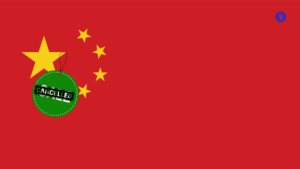The International Court of Justice (ICJ) announced overnight it’ll hand down tomorrow (Friday) its highly anticipated interim ruling on South Africa’s genocide case against Israel. Here’s what you need to know.
South Africa lodged its case on 29 December, alleging Israel’s actions in Gaza breach the Genocide Convention. South Africa’s ruling party (the African National Congress) has long drawn parallels between its own experiences resisting apartheid, and Palestinian experiences with Israel.
Supporters applauded South Africa’s efforts to end a conflict that’s seen most of Gaza’s 2.3 million people displaced and more than 25,000 killed.
Stay on top of your world from inside your inbox.
Subscribe for free today and receive way much more insights.
Trusted by 134,000+ subscribers
No spam. No noise. Unsubscribe any time.
Critics said the case made a mockery of the ICJ, weakened the very concept of genocide, and reflected hypocrisy by South Africa (which declined to arrest an alleged genocidaire in 2015, and hosted another earlier this month).
Tomorrow’s ruling is not on whether Israel is breaching the Genocide Convention (that ruling will take years). Rather, it’s on South Africa’s request for emergency orders like more aid to Gaza, and a halt to Israel’s military operation.
For this, South Africa had to prove its genocide claims were “plausible”. It then had to prove its proposed emergency measures were necessary.
So South Africa argued on 11 January that:
- Israeli officials have voiced genocidal intent, such as in Prime Minister Netanyahu’s reference to ancient Israel’s destruction of Amalek
- Israeli soldiers have acted on that intent (lawyers referenced videos of soldiers “joyfully detonating entire apartment blocks”), and
- Israeli actions have been genocidal in nature, causing destruction, displacement, and death aimed at the “destruction of Palestinian life“.
In response, Israel arguedthe following day that:
- Not all public comments reflect official policy, and Netanyahu’s ‘Amalek’ speech also said Israel “does everything to avoid harming non-combatants“
- Israel is targeting Hamas, not Palestinians, as evidenced in its evacuation orders and warnings to civilians
- Palestinian casualties are the result of Hamas booby traps, misfired rockets, and its widespread use of civilian infrastructure, and
- Any order for Israel to cease efforts to rescue its hostages and defeat Hamas would violate the country’s basic right to self-defence.
South Africa’s foreign minister has announced she’s flying to The Hague for tomorrow’s interim ruling. Israel hasn’t yet commented on the court’s announcement.
INTRIGUE’S TAKE
As ever, this is such a polarising issue in part because it features such opposing yet confident narratives.
The Palestinian people might describe a history of occupation, oppression, and denial of their right to self-determination, culminating in a situation now so dire it’s ended up as a genocide case at the world’s highest court.
The Jewish people might describe their own history of injustice, genocide, and a connection to the land of Israel that stretches back to the Bronze Age, culminating in today’s single Jewish state among neighbours seeking its end.
These competing narratives have paralysed the UN Security Council, which is partly why South Africa felt justified going to the ICJ instead.
The most likely outcome tomorrow is that neither party gets all it wants: e.g., the ICJ might find it’s “plausible” the Genocide Convention is being breached, in turn ordering Israel to adjust but not halt its operation.
This type of ruling may not drive immediate change, especially given the ICJ’s lack of enforcement and Israel’s vow to still rescue its hostages and defeat Hamas.
But it could put pressure on Israel’s allies like the US, on Netanyahu domestically, and on the international order itself as its limits are laid bare.
And we’ll likely see those same opposing narratives play out; whether it’s allegations of the West’s selective enforcement of international law, or allegations of the world’s selective focus on its lone Jewish state.
Also worth noting:
- The treaty defines genocide as “acts committed with intent to destroy, in whole or in part, a national, ethnical, racial or religious group”.
- Both Israel and South Africa were able to appoint ‘ad hoc’ ICJ judges for this case, bringing the total bench to 17 judges. ICJ rulings are binding and non-appealable, but also largely unenforceable.
- Separately, the ICJ will next month start oral hearings on the “Legal Consequences arising from the Policies and Practices of Israel in the Occupied Palestinian Territory, including East Jerusalem”.
- Unlike the ICJ, the International Criminal Court (ICC) can try individuals. It opened an investigation into the Palestinian-Israeli conflict in 2021. Various states (including Israel) don’t recognise it.








